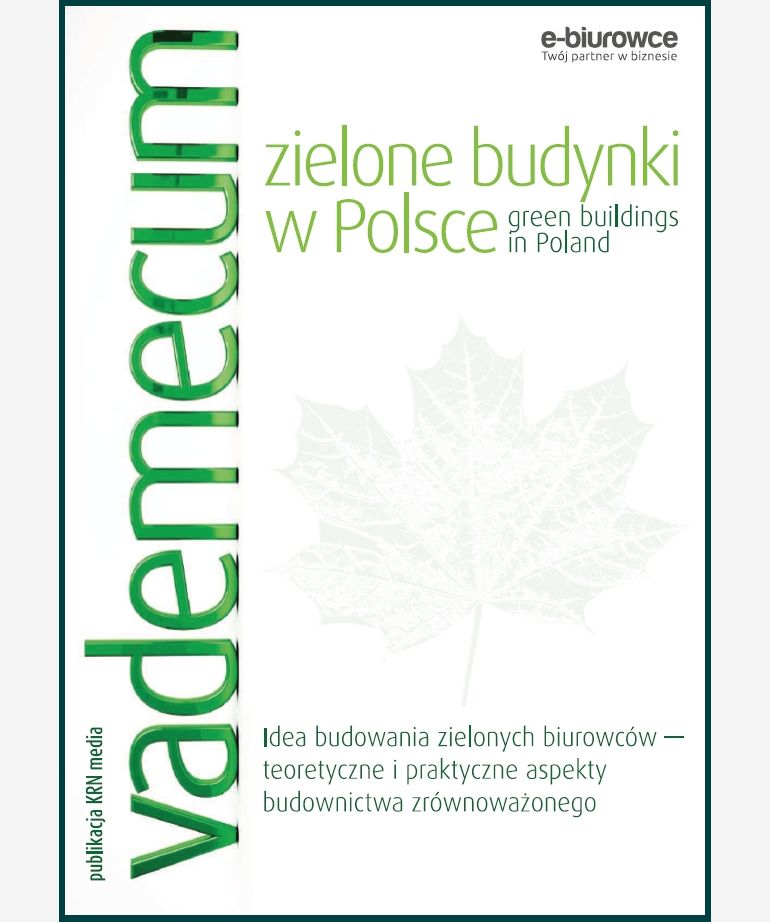Green horizons
Sustainable building, also known as green building, is becoming more and more popular in Poland. Just a few years ago it was considered as extravagant. However, in the last two years the number of investments which implemented the principles of sustainable development increased dramatically. This is due to global trends which come to Poland from abroad as well as legal regulations enforcing respect for the environment and energy saving.
The importance of green building is growing on the Polish commercial real estate market and at the same time more attention is paid to certifications confirming that the investment was realized in accordance with the standards. The certifications are not designed to increase the prestige of office buildings. More and more international corporations start taking into account green building certifications when they look for office space.
Meaningful certificates
What actually is sustainable building? Who sets the standards? What do BREEAM, LEED and DGNB stand for? What criteria must be fulfilled for a building to get a certification? When should one start thinking about that? And most importantly – is it worth the effort?
Certification systems are becoming a permanent feature of the property market – we read in vade mecum "Zielone budynki w Polsce" (Green Buildings in Poland) compiled by the team of e-biurowce.pl. The main purpose of certifications is not to evaluate buildings but to promote sustainable building and intelligent solutions applied in the investment process. At present, on the Polish market there are two systems of commercial buildings certifications in use – LEED and BREEM.
American LEED (Leadership in Energy and Environmental Design), based on building standards used in America, is now most widely used in Poland. It is so because of its global position and the fact that American corporations consider it to be the standard influencing their choice of office space. British BREEAM (Building Research Establishment Environmental Assessment Method) also plays a significant role. It is more flexible adjusting to local environmental and legal conditions. Still it is less popular on a global scale.
Experts on the sustainable building suggest that in near future another system will be functioning in Poland - DGNB (Deutsche Gesellschaft für Nachhaltiges Bauen) from Germany. Its authors aim at creating from scratch assessment criteria which would allow to compare buildings from around the world.
Accredited consultants play an important role in creating a green building throughout the process: from working on the design, through construction and ending with the finishing. Consultants not only control the construction process and formal requirements, but mainly advise on decisions made and solutions applied so that they would meet the assessment criteria. A licensed consultant can help in choosing the criteria which the building should meet and those which for various reasons can be skipped – says vade mecum "Zielone budynki w Polsce".
Changed thinking
For investors the topic of green building financing is very important. Sustainable development requires changing one's thinking about the economic balance of the investment as it should no longer include the construction costs only but the building's whole life cycle. Such change in thinking allows to see real – financial – benefits of green building. Thanks to integrated solutions tenants and owners of the office building can save significant amounts on operating costs.
Specific charges depend among others on the size of the building or being a member of the organization which assesses the building. Professional consulting, necessary to obtain a satisfactory assessment, means additional costs – the team of www.e-biurowce.pl sums up in "Zielone budynki w Polsce".
Vade mecum "Zielone budynki w Polsce" is available on www.e-biurowce.pl/e-book

